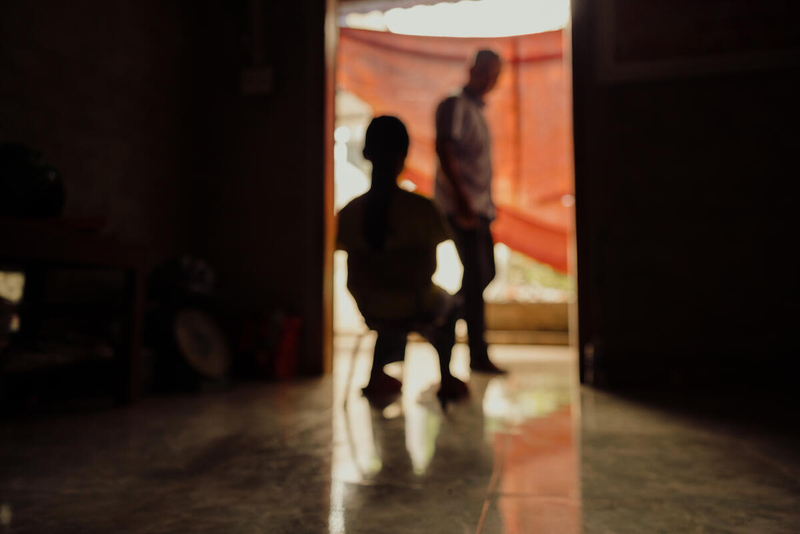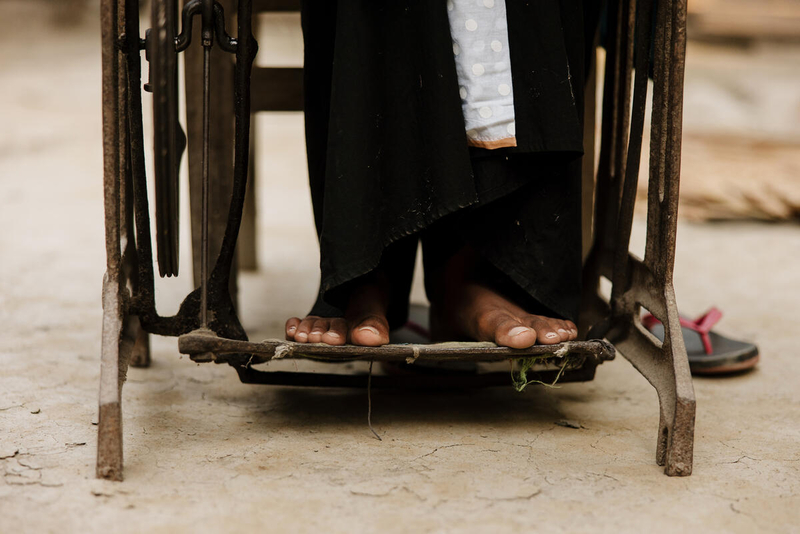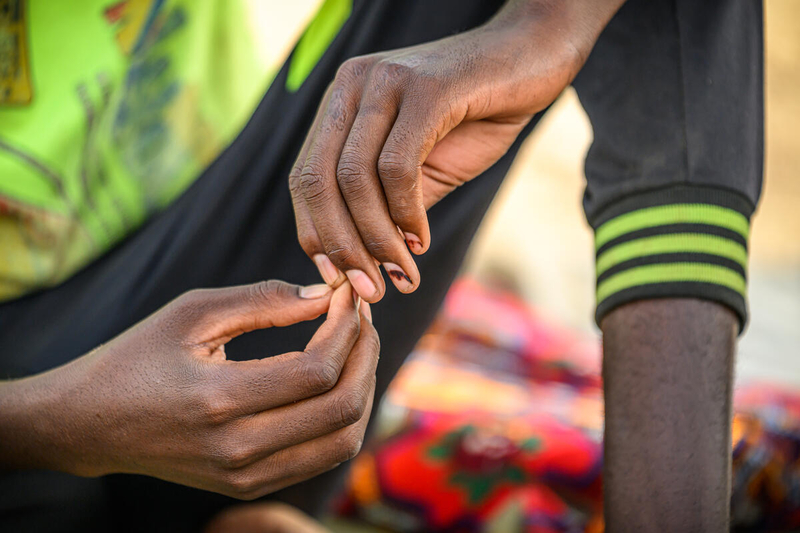Login Toast Message
Login toast message for the successfully login user
- Toast Message
-
Welcome Back, {{username}}👋
Logging you in....
Let's make a difference today.
When drought killed the crops again, the 15-year-old girl in Angola turned to prostitution. She did it to feed her mother and grandmother. For an entire day alone with a client, she earned the equivalent of $1.50 Canadian.
Child trafficking increases in disaster zones—especially in complex crises. In fragile places like South Sudan, Somalia or Syria, disaster, climate change, social and economic chaos often converge all at once.
In fact, the highest number of girls trafficked into marriage live in the world’s 10 most fragile regions. The proceeds from selling a daughter can save the lives of several other children in the family, feeding them for months or even years. In some cases, the “bride price” is protection from armed gangs.
So why does trafficking escalate during disasters—and why is child protection so critical? There are three main reasons, says Adeyinka Onabolu, a child protection expert with World Vision.
“First, children become more vulnerable when their families are displaced” says Adeyinka. “They may become separated from their parents or caregivers. In their isolation, children are more easily deceived or coerced by traffickers.”
“Second, when families lose their livelihoods due to earthquakes, droughts or conflict, desperation sets in,” she continues. “Children may be forced to work simply to survive.” Exploitative child labour is, in many cases, a form of trafficking.
“Third, disasters often destroy the systems that protect children—like schools, clinics and social services,” she says. “With fewer trusted adults watching out for them, children are at much higher risk. And traffickers know this.”
Child trafficking in emergencies is widely misunderstood—especially when family members are involved. Here are just a few of the misconceptions I had before speaking with Adeyinka and others:
I knew forced, underage marriage was cruel—but I hadn’t understood it was child trafficking.
I assumed families involved in these decisions had other options.
I didn’t understand that when children “choose” to work under abusive conditions to help their families survive, they are still victims of trafficking.
In humanitarian disasters, notes Adeyinka, families grasping for solutions may engage in “negative coping strategies.” These are often not real choices. They are heartbreaking last resorts.
I think about the devastation Afghan parents felt in 2021, when selling daughters as young as seven years old into marriage. Or the children in Syria toiling in brutal conditions when humanitarian aid couldn’t reach them.
I tried to imagine my own 13-year-old son, walking away from home with a backpack, searching for any work—any kind of labour—to save his little brother’s life. I couldn’t let my mind go there. But for millions, it’s reality.
.jpg.coreimg.jpeg/1753269866973/emerg-response-trafficking-peephole-w115-0337-122--1-.jpeg)
.jpg.coreimg.jpeg/1753269867049/emerg-response-trafficking-folded-hands-w030-0815-075--1-.jpeg)



.jpg.coreimg.jpeg/1753269867089/emerge-response-trafficking-tent-shadow-d065-0194-19--1-.jpeg)
.jpg.coreimg.jpeg/1753269867105/emerg-response-trafficking-floor-mattress-w095-0294-025--1-.jpeg)
.jpg.coreimg.jpeg/1753269867031/emerg-response-trafficking-heavy-hammer-w030-0761-111--1-.jpeg)
No matter the scale of the humanitarian disaster, child trafficking—the exploitation of a child in any way for any reason—is a grave violation of their most basic rights.
When disaster strikes, World Vision is there. We recognize that children may be coerced, deceived, or forced into labour or marriage. Often, they feel it’s their duty to help their family survive.
Think again of the 15-year-old girl in Angola. If she didn’t work, her mother and grandmother might starve. With no home, no protection, and no safe adult to turn to, the dangers she faced only grew.
When emergencies strike, World Vision calls on people across Canada. You’ve likely heard us say: “Your donation provides food, water, shelter—and protection.”
Ever wondered what that “protection” part means? Helping keep children safe from child trafficking is a big part of it.
Our staff are constantly on the lookout for unaccompanied children wandering alone and work hard to reunite them with family members.
Our provision of essentials like food, water, shelter and cash-based assistance give parents other options for keeping their children alive.
Our child-friendly spaces and education programs offer secure places for children to play and learn in the chaotic aftermath of a disaster—or the years of instability in a fragile region.
Our work in fragile regions helps families recover and rebuild through programs such as livelihood training.
Our teams educate families about children’s rights and alternatives to child labour and child marriage.
We are working hard to ensure children’s rights are honoured, even in the most desperate places in the world. Would you help?
Please give to our Emergency Response Fund today
Together, we can help protect children when they’re most at risk.